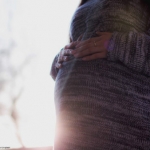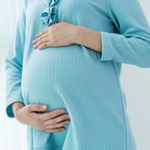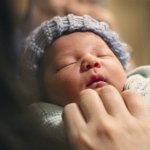Do anti-epileptic drugs increase the risk for miscarriage and/or stillbirth? Many reports have demonstrated an association between the use of antiepileptic drugs during pregnancy and increased risk of congenital malformations and pregnancy complications, including pre-eclampsia, preterm birth, and intrauterine growth retardation. However, little is known about the impact of antiepileptic drugs (AEDs) on the risk of miscarriage and stillbirth.
In a recent population-based cohort study, researchers asked this question using data form Danish pregnancy registries. They examined a total of 983,305 pregnancies from 1997 through 2008; 11% of the pregnancies resulted in spontaneous abortion and 0.3% in stillbirth.
Overall, 0.5% (n=4700) of the pregnancies were exposed to antiepileptic drugs. The most commonly used antiepileptic drugs were lamotrigine (34%), valproate (13%), carbamazepine (12%), clonazepam (11%), and oxcarbazepine (11%). 16 out of 100 pregnant women using antiepileptic drugs had a spontaneous abortion, compared to 13 out of 100 women with no antiepileptic exposure. After adjusting for potential confounders, it was estimated that pregnant women using AEDs had a 13% higher risk of spontaneous abortions than pregnant women not using AEDs (adjusted risk ratio 1.13, 95% confidence interval 1.04 to 1.24). The risk of stillbirth was higher in women who used antiepileptic drugs (unadjusted risk ratio 1.29, 0.80 to 2.10); however, this finding was not statistically significant given the small number of stillbirths in the database.
When they analyzed the data with regard to diagnosis, comparing risk of miscarriage in women with epilepsy versus women without epilepsy, the researchers found that there no increase in risk in women with epilepsy taking AEDs. However, a small increase in risk was observed only in women who did not have a diagnosis of epilepsy (RR=1.30, 1.14 to 1.49). Most likely, these are women taking these medications for mood or anxiety disorders or pain management; however, the report did not include this information.
In women on AEDs who did not have a diagnosis of epilepsy, it appeared that the risk of spontaneous abortion is higher in women taking higher versus lower doses of AEDs. It is not clear if this increase in risk indicates a dose-response relationship or if higher AED dosage is merely a marker for more severe illness (which may increase risk of miscarriage independent of medication exposure).
Overall the data is reassuring. This large, registry based study suggests that women treated for epilepsy with antiepileptic drugs during pregnancy may not be at increased risk of spontaneous abortion. Looking at the risk of miscarriage in the women without epilepsy who took AEDs, the increase in risk was statistically significant, but small, yielding a relative risk of only 1.30. We could argue that this difference in risk for spontaneous abortion between exposed and non-exposed pregnancies is so small that it may not be clinically relevant. It is also important to note that we have observed in other studies in this population, that more severe psychiatric illness may be associated with increased risk of miscarriage independent of any medication exposure.
Ruta Nonacs, MD PhD
Bech BH, Kjaersgaard MI, Pedersen HS, Howards PP, Sorensen MJ, Olsen J et al. Use of antiepileptic drugs during pregnancy and risk of spontaneous abortion and stillbirth: population based cohort study. BMJ 2014; 349: g5159.








Leave A Comment